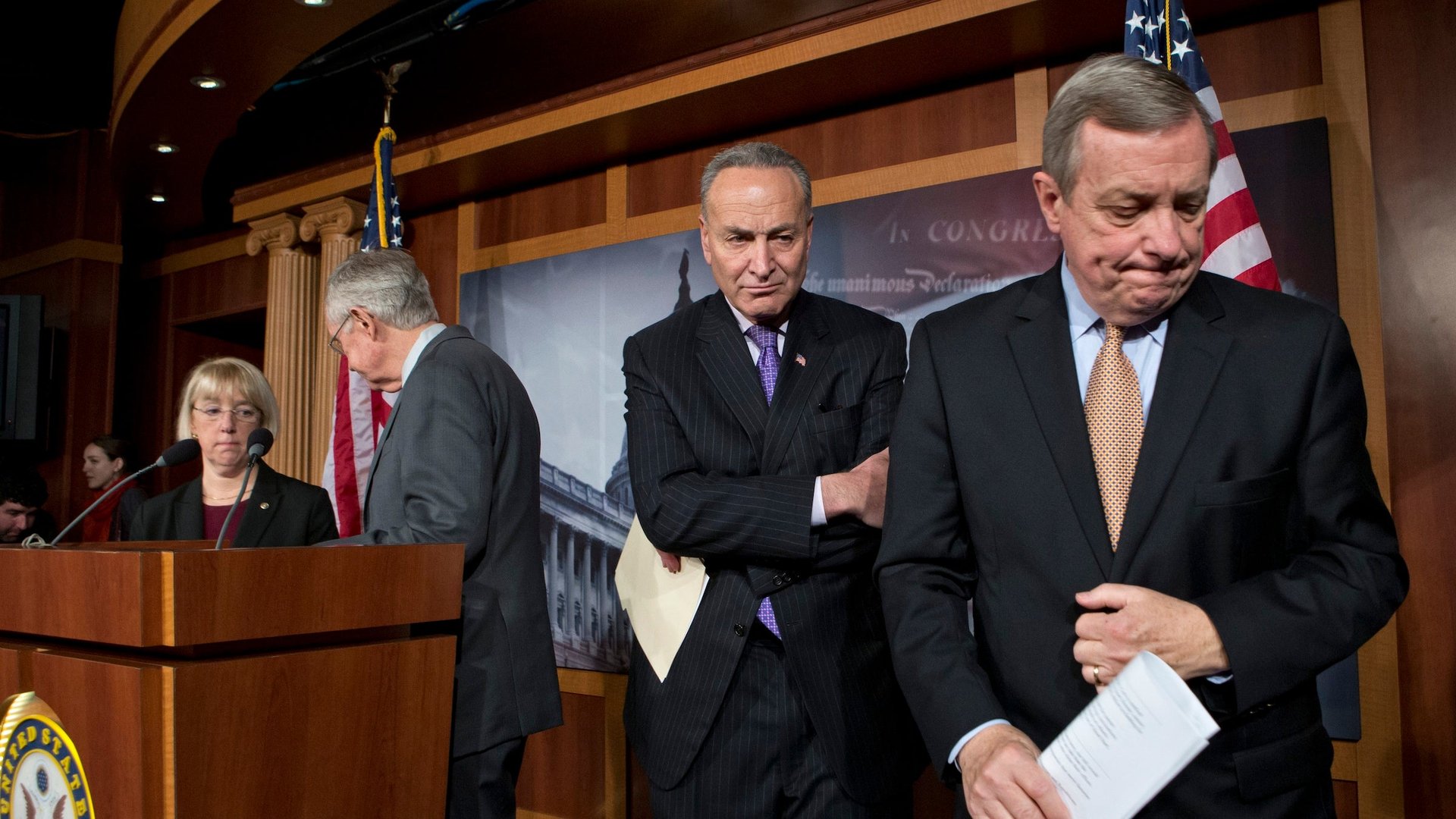America’s recovering economy turned the Washington fiscal fight into a sideshow
Have we finally reached the end of fiscal crises in Congress?


Have we finally reached the end of fiscal crises in Congress?
The release of the Senate Democrats’ budget yesterday marked a distinctly establishmentarian turn for the party, preserving government services as painlessly as they think possible. The deficit reduction target is in line with the major bipartisan debt stability commissions, including nearly a trillion dollars in spending cuts and interest savings—even $275 billion in cuts to Medicare providers—and a matching amount of tax increases achieved by closing loopholes for corporations and the wealthy. A $100 billion jobs and infrastructure program is the only thing resembling a bold push against mass unemployment, the primary problem in the US economy. Compare that to a proper liberal budget.
The Republican budget earlier in the week was a far more radical document, promising to shift the responsibility for major social insurance programs from the federal government to the states, cutting them in the process, and lower tax rates dramatically. But it’s an agenda unlikely to go anywhere until a Republican president returns to the White House. The GOP’s plan did make two concessions to the prevailing mood, however, in recognizing the defense spending caps in last year’s budget agreement and agreeing to start with a level of tax revenue that includes last year’s increase on the wealthy.
The urgency of overcoming this fiscal stalemate has been reduced by signs of a strengthening economy: Retail sales remained strong for a second month despite an increase in the payroll tax affecting all workers—or perhaps just temporarily, because of their tax refunds. There’s good reason to believe consumer spending will increase, the housing market will grow, and the economy will by and large absorb the affects of the substantial deficit reduction already in place.
While Republicans are pillorying the Obama administration for forecasting the worst-case scenario from the budget cuts in the automatic sequestration process that began on March 1—which perhaps misses how slow-acting they will be—the other side of the coin is that the negative effects of tax increases haven’t been seen either. Of course in both cases the projections are counter-factual, and the economy would be doing even better in the near-term absent all the spending cuts and tax increases.
Congress is negotiating a spending deal to get us through 2013 at last year’s levels, with some small fixes to blunt sequestration, and with hopes of a grander fiscal comprise in the fall. A tax reform bill is the first priority of House Republican leadership, and could be the vehicle for such an agreement if Democratic tax writers can come on board.
But the immediate future of Washington will favor staying the course for a stable debt load and few major overhauls—at least until comprehensive immigration reform gets the serious hearing both leaders in both parties have promised.